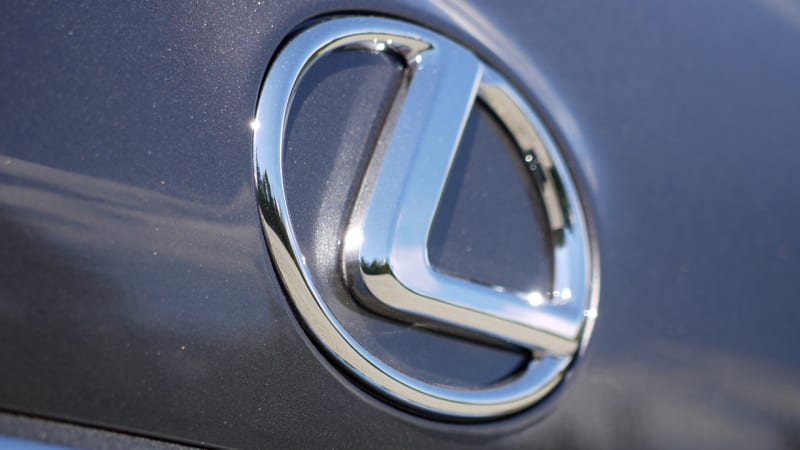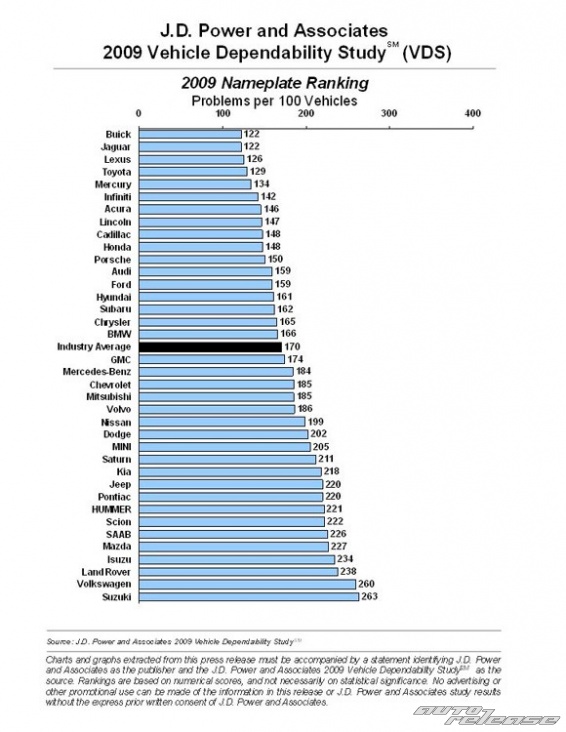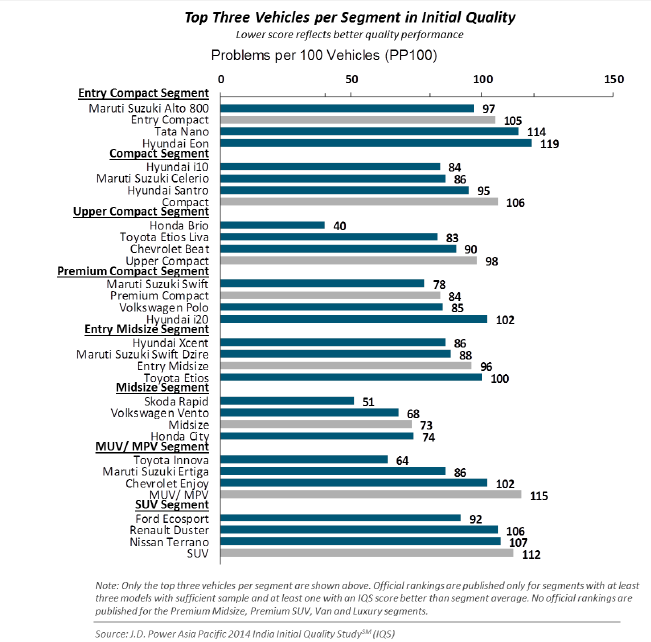Lexus tops JD Power Vehicle Dependability Study again, Buick bests Toyota

It shouldn't surprise anyone, but Lexus has once again taken the top spot in JD Power's Vehicle Dependability Study. That'd be the Japanese luxury brand's fourth straight year at the top of table. The big news, though, is the rise of Buick.
General Motor's near-premium brand beat out Toyota to take second place, with 110 problems per 100 vehicles compared to Toyota's 111 problems. Lexus owners only reported 89 problems per 100 vehicles.
Besides Buick's three-position jump, Scion enjoyed a major improvement, jumping 13 positions from 2014. Ram and Mitsubishi made big gains, as well, moving up 11 and 10 positions, respectively. In terms of individual segments, GM and Toyota both excelled, taking home seven segment awards each.
The study wasn't good news for all involved, though. A number of popular automakers finished below the industry average of 147 problems per 100 vehicles, including Subaru, (157PP100), Volkswagen (165PP100), Ford/Hyundai (188PP100 each) and Mini (193PP100). The biggest losers (by a tremendous margin, we might add) were Land Rover and Fiat, recording 258 and 273 problems per 100 vehicles. The next closest brand was Jeep, with 197PP100.
While the Vehicle Dependability Study uses the same measurement system as the Initial Quality Survey, the two metrics analyze very different things. The VDS looks at problems experienced by original owners of model year 2012 vehicles over the past 12 months, while the oft-quoted IQS focuses on problems in the first 90 days of new-vehicle ownership.
Like the IQS, though, the VDS has a rather broad definition of what a problem is. Because of that, a low score from JD Power is no guarantee of extreme unreliability, so much as just poor design. In this most recent study, the two most reported problems focused on Bluetooth connectivity and the voice-command systems. The former leaves plenty of room for user error due to poor design (particularly true of the Bluetooth systems on the low-scoring Fords, Volkswagens and Subarus), while the second is something JD Power has already confirmed as being universally terrible.
That makes means that while these studies are important, they shouldn't be taken as gospel when it comes to automotive reliability.
Source






